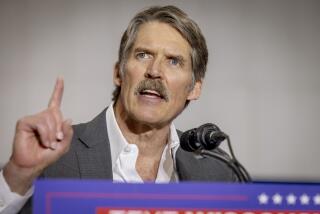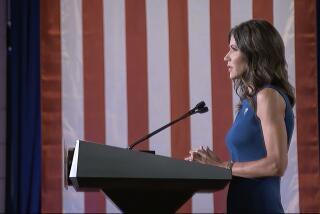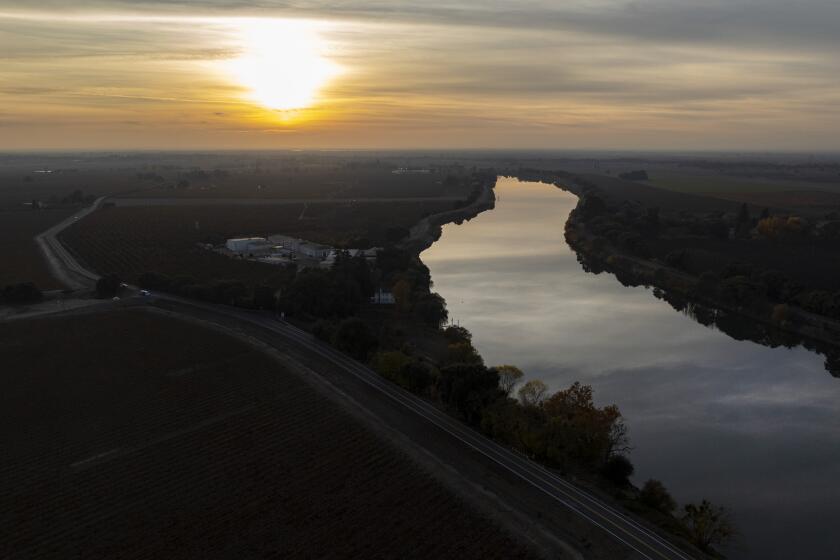Breyer Is Again Challenged on His Investment : Judiciary: High court nominee ends his testimony. Despite tough questioning on Lloyd’s of London issue, Senate approval is expected.
Supreme Court nominee Stephen G. Breyer wrapped up his testimony before the Senate Judiciary Committee Thursday but not before undergoing one more round of questions on his ill-fated investment in Lloyd’s of London.
The panel plans to end the hearings today after hearing from public witnesses, including consumer advocate Ralph Nader, who opposes Breyer’s confirmation.
The committee may vote on the nomination early next week and send it to the Senate floor for expected quick approval. Under its normal rules, the committee usually waits a week after a hearing before voting on a nominee but that rule can be waived if all 18 members agree.
In any event, the senators said that they think Breyer will win final confirmation before the Senate recesses in August.
Lloyd’s marked the only sour note in Breyer’s three days of testimony, and on Thursday, Sen. Howard M. Metzenbaum (D-Ohio) said that it was “imprudent” for Breyer to have judged a case involving a pollution cleanup while he had an investment in the British insurance company.
“I think that case (involving a pollution cleanup in New Hampshire) is relevant to your investment, indirectly, not directly, and to what extent neither you nor I know,” Metzenbaum said. For that reason, Breyer should have stepped aside when the case arose, he said, because Lloyd’s was liable for paying for some cleanup costs of American firms.
*
Breyer disputed that conclusion. “If I thought there were a substantial, direct effect (on the investment), I would have taken myself out,” he replied. “I concluded that any effect on my investment was remote or speculative or contingent, not substantial or direct. I think that was a correct judgment.”
Breyer told the senators that he first invested in Lloyd’s during the 1970s before he became a judge, believing it to be a “conservative investment” akin to a “mutual fund.” Because Lloyd’s insured risks all around the world, Breyer thought his investment was safe and diversified.
But neither assumption proved to be correct. To his surprise, Breyer said he learned during the late 1980s that Lloyd’s was heavily liable for costs in the United States for asbestos and other pollution cleanup.
As a result, Breyer said he not only lost money, but the continuing liability raised a potential conflict with his judicial duties.
In 1988, the judge withdrew from Lloyd’s, he said. He told the committee that he wants to end his involvement “absolutely as soon as possible.” However, as an insurer of last resort, Lloyd’s investors such as Breyer remain liable for new claims that arise over problems that developed during the 1980s.
Several experts in legal ethics say it might have been “imprudent” for a judge to have a large investment in Lloyd’s, but they also said that Breyer did not violate the code of ethics because his rulings did not directly affect his investment.
More to Read
Get the L.A. Times Politics newsletter
Deeply reported insights into legislation, politics and policy from Sacramento, Washington and beyond. In your inbox three times per week.
You may occasionally receive promotional content from the Los Angeles Times.







